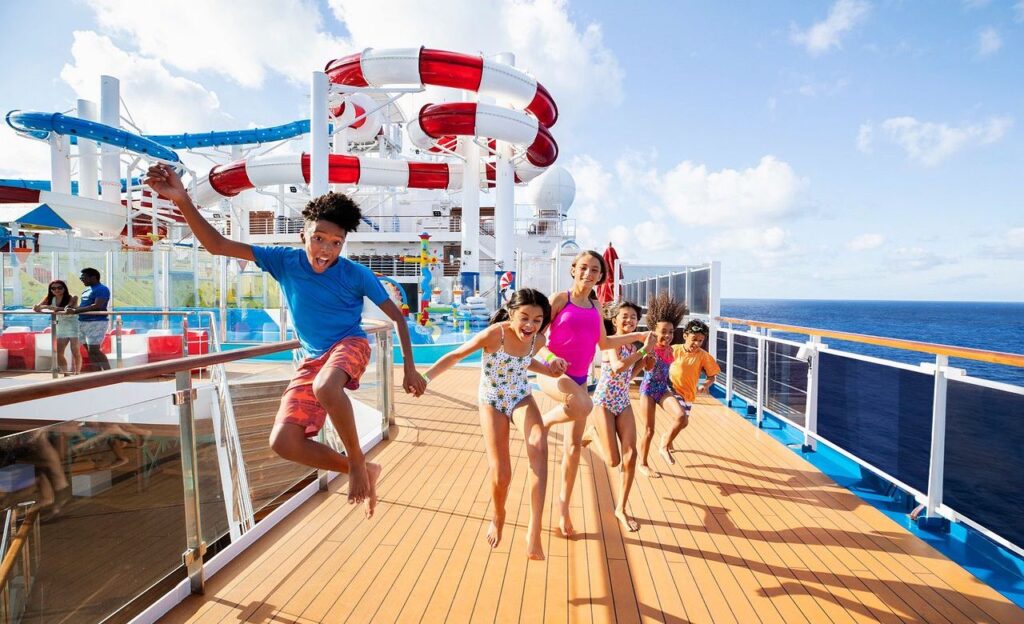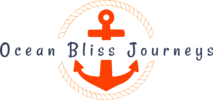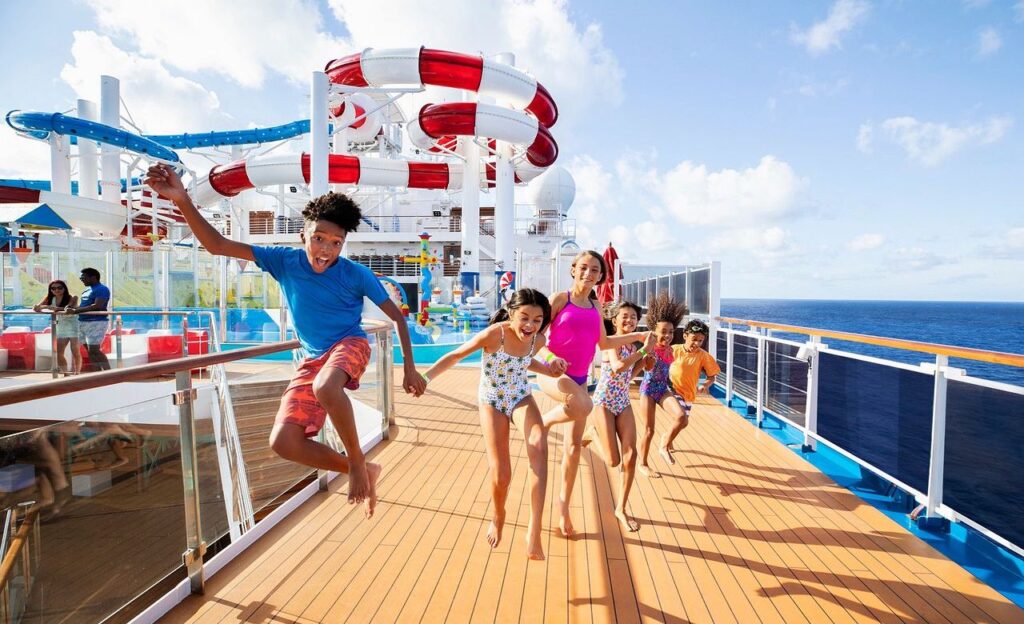Are you a student looking for an exciting and educational adventure? Look no further than educational cruises! These unique experiences offer students the opportunity to learn outside the classroom while exploring fascinating destinations. From marine biology expeditions to historical tours, educational cruises provide a range of options that cater to various interests and educational goals. Embark on a journey that combines learning and leisure, allowing you to expand your knowledge and create memories that will last a lifetime.
Types of Educational Cruises
Science and Environmental Cruises
Science and environmental cruises offer students the opportunity to explore and learn about the natural world in a hands-on and immersive way. These cruises often visit remote and pristine locations, such as the Galapagos Islands or the Great Barrier Reef, where students can witness firsthand the incredible diversity of marine life and ecosystems. On these cruises, students can participate in scientific research projects, engage in snorkeling or diving activities to study marine biology, or even learn about different environmental conservation efforts.
Cultural and Historical Cruises
Cultural and historical cruises focus on exposing students to different cultures, histories, and civilizations around the world. These cruises visit culturally significant destinations, such as ancient ruins in Greece or historic landmarks in Europe, where students can learn about the art, architecture, and traditions of different civilizations. Through guided tours, interactive workshops, and local interactions, students can gain a deeper understanding and appreciation of the world’s diverse cultures and histories.
Language and Cultural Immersion Cruises
Language and cultural immersion cruises provide students with the opportunity to enhance their language skills while immersing themselves in the culture of a specific region. These cruises often visit countries where the language being learned is spoken, such as Spain for Spanish or Japan for Japanese. Students can take language classes onboard, practice their skills in real-life situations during shore excursions, and interact with local residents, allowing for a more authentic and immersive language learning experience.
Benefits of Educational Cruises
Hands-on Learning Opportunities
Educational cruises offer unique hands-on learning opportunities that go beyond the traditional classroom setting. Whether it’s conducting scientific experiments, participating in cultural workshops, or practicing language skills with native speakers, students gain practical knowledge and skills that are applicable to real-life situations. This experiential learning approach promotes active engagement and deeper understanding, making educational cruises an effective way to enhance academic learning.
Exposure to Different Cultures and Environments
One of the greatest benefits of educational cruises is the exposure to different cultures and environments. By visiting various ports of call and immersing themselves in local communities, students can gain a global perspective and develop a greater appreciation for the diversity of the world. They can experience firsthand the customs, traditions, and lifestyles of different cultures, fostering cultural sensitivity and empathy. Additionally, exploring different environments, such as marine ecosystems or historical sites, allows students to develop a deeper understanding of the world’s natural and cultural heritage.
Development of Social Skills and Independence
Educational cruises provide an ideal environment for students to develop important social skills and independence. Living in close quarters with fellow students and interacting with individuals from different backgrounds fosters teamwork, cooperation, and communication skills. Students learn to adapt to new environments, solve problems, and collaborate with others effectively. Furthermore, the nature of a cruise ship encourages self-reliance and personal responsibility, as students navigate daily routines and manage their own time and belongings.

This image is property of lifewellcruised.com.
Top Destinations for Educational Cruises
Galapagos Islands
The Galapagos Islands, located in the Pacific Ocean off the coast of Ecuador, are a renowned destination for educational cruises. Known for their unique biodiversity and the inspiration they provided to Charles Darwin, the Galapagos offer students the opportunity to witness incredible wildlife up close, including giant tortoises, marine iguanas, and blue-footed boobies. Educational cruises to the Galapagos often involve guided hikes, snorkeling or diving excursions, and educational presentations by experienced naturalists.
Mediterranean
The Mediterranean is another popular destination for educational cruises, offering students the chance to explore diverse cultures and historical sites. From the ancient ruins of Rome to the picturesque islands of Greece, the Mediterranean is a treasure trove of cultural and historical landmarks. Educational cruises in the Mediterranean may include visits to iconic cities like Barcelona, Athens, or Venice, where students can explore architectural wonders, museums, and UNESCO World Heritage sites.
Alaska
Alaska, with its stunning landscapes and rich biodiversity, is an ideal destination for science and environmental cruises. Students can witness majestic glaciers, observe wildlife such as bears and whales, and learn about the unique ecosystems of the region. Educational cruises in Alaska often involve guided hikes in national parks, visits to native Alaskan communities, and educational lectures on topics like climate change and conservation.
Organizations Offering Educational Cruises
Oceanic Society Expeditions
Oceanic Society Expeditions is a non-profit organization that offers educational cruises focused on marine conservation and scientific research. They collaborate with local communities, conservation organizations, and scientists to provide students with hands-on learning experiences in destination such as the Galapagos Islands, Belize, and Baja California. Their expeditions are led by experienced naturalists and scientists who provide expert guidance and facilitate immersive educational activities.
Class Afloat
Class Afloat is a unique educational program that combines academics with sailing experience. Students live and study on a tall ship, traveling to multiple countries while earning high school or college credits. Along the way, they participate in rigorous academic programs, cultural experiences, and character development activities. Class Afloat offers several different itineraries, including voyages in the Mediterranean, the Caribbean, and North Atlantic.
Broadreach
Broadreach offers educational adventure programs for students interested in marine biology, scuba diving, wilderness medicine, and cultural immersion, among other topics. Their educational cruises take students to various destinations worldwide, including the Galapagos Islands, the British Virgin Islands, and French Polynesia. Broadreach focuses on experiential learning, providing students with opportunities for hands-on activities, community service, and personal growth.

This image is property of www.adventurestudenttravel.com.
How to Choose an Educational Cruise
Identify Educational Goals
Before choosing an educational cruise, it’s important to identify your educational goals and what you hope to gain from the experience. Are you interested in marine biology, language immersion, or cultural exploration? Understanding your specific interests and objectives will help narrow down the options and find a cruise that aligns with your educational needs.
Consider Budget and Logistics
Consider your budget and logistical considerations when choosing an educational cruise. Some cruises may be more affordable than others, depending on factors such as destination, duration, and included amenities. Additionally, consider practical aspects such as travel to and from the embarkation port, visa requirements, and any necessary vaccinations. Evaluating these logistical details will ensure a smooth and stress-free experience.
Research Cruise Providers and Itineraries
Do thorough research on various cruise providers and their itineraries to find the best fit for your educational goals. Read reviews from previous participants, inquire about the educational curriculum, and evaluate the expertise and experience of the staff and guides. Be sure to review the schedule and activities offered during the cruise, as well as the academic support provided. Comparing different options will help you make an informed decision and select the educational cruise that meets your expectations.
Safety and Security Measures
Emergency Procedures and Protocol
Safety is a top priority on educational cruises, and reputable cruise providers implement thorough emergency procedures and protocols. Students are briefed on emergency procedures upon embarking the ship, including evacuation plans, first aid protocols, and communication protocols in case of emergencies. The crew and staff are trained to handle various emergency situations and have the necessary safety equipment onboard.
Supervision and Staffing
Educational cruises are staffed by experienced professionals who ensure the safety and well-being of students throughout the journey. Cruise providers ensure a sufficient staff-to-student ratio to maintain supervision and offer guidance throughout the cruise. This allows for personalized attention and support, ensuring a safe and enriching educational experience for every student.
Medical Support and Facilities
Onboard medical support and facilities are essential components of educational cruises. Cruise providers ensure that medical professionals or qualified staff are available onboard to attend to any medical needs that may arise. In addition, the ship is equipped with medical facilities and supplies to handle common health issues or emergencies. Prior to embarkation, students are often required to provide medical information and may need to meet certain health criteria.

This image is property of www.adventurestudenttravel.com.
Important Considerations for Students
Preparation and Packing Tips
Proper preparation and packing are crucial for a successful educational cruise experience. Research the destination and familiarize yourself with the climate, cultural norms, and any specific clothing or gear requirements. Pack essentials such as comfortable walking shoes, sunscreen, insect repellent, and appropriate clothing for various activities. It’s also important to pack any necessary medications and personal items that will ensure your comfort during the journey.
Expectations for Behavior and Conduct
Educational cruises often have specific guidelines and expectations for student behavior and conduct. These guidelines are in place to ensure the safety and well-being of all participants and to maintain a positive learning environment. Familiarize yourself with the cruise provider’s code of conduct and adhere to the guidelines throughout the journey. Respect for fellow participants, staff, local communities, and the environment is essential.
Adapting to a Shipboard Environment
Living and studying on a ship can be a unique experience, and it’s important to adapt to the shipboard environment. Be prepared for limited personal space, shared facilities, and a structured daily routine. Follow shipboard rules and regulations, including safety protocols and respect for noise levels and quiet hours. Embrace the opportunity to meet people from different backgrounds and make connections with fellow students, staff, and crew members.
Testimonials and Success Stories
Student Experiences and Feedback
Many students who have participated in educational cruises have shared their experiences and positive feedback. They often highlight the transformative nature of the journey, the educational value gained, and the lasting memories created. Students recount encounters with marine life, cultural immersion experiences, and the development of new skills and perspectives. Reading testimonials from previous participants can provide insights into the potential impact of an educational cruise on personal growth and learning.
Academic Achievements and Recognition
Educational cruises often offer opportunities for academic achievements and recognition. Depending on the program and curriculum, students may earn educational credits, certifications, or awards for their participation and achievements. These academic accomplishments can enhance college or university applications, showcasing a student’s dedication to experiential learning and their ability to thrive in unique educational environments.
Impact on Personal Growth and Career Paths
Participating in an educational cruise can have a profound impact on personal growth and career paths. The knowledge, skills, and experiences gained during a cruise can serve as valuable assets in various academic and professional pursuits. Students may discover new passions, develop a deeper understanding of their fields of interest, or gain valuable insights into potential career paths. The cultural sensitivity, independence, and problem-solving skills developed during an educational cruise can also contribute to personal and professional success in the long run.

This image is property of www.carnival.com.
Costs and Financial Aid
Tuition and Fees
Educational cruises often involve tuition and fees that cover the cost of the program, onboard accommodations, meals, and educational activities. The total cost varies depending on factors such as destination, duration, and included amenities. Tuition and fees should be considered when budgeting for an educational cruise, and it’s important to review the details and payment schedules provided by the cruise provider.
Scholarships and Grants
To make educational cruises more accessible, some cruise providers offer scholarships and grants to eligible students. These financial aid opportunities may be merit-based or need-based and can help reduce the overall cost of the program. Checking with the cruise provider and exploring external scholarship opportunities can help students secure additional financial support for their educational cruise.
Fundraising and Parental Support
In addition to scholarships and grants, fundraising and parental support can also help offset the costs of an educational cruise. Students can organize fundraisers within their schools or communities, such as bake sales, car washes, or crowdfunding campaigns, to raise funds for their educational journey. Additionally, parents may be willing to contribute financially or support fundraising efforts to help make an educational cruise a reality.
In conclusion, educational cruises offer students a unique and comprehensive learning experience that combines academic education with cultural immersion, hands-on learning, and personal growth. By exploring different types of educational cruises, considering the benefits, top destinations, and organizations offering them, students can make an informed decision that aligns with their educational goals and interests. Additionally, understanding safety and security measures, considering important considerations for students, and exploring testimonials and success stories can help students envision the impact of an educational cruise on their personal and academic lives. While costs and financial aid are factors to consider, there are options available to make these enriching experiences accessible to more students. Ultimately, participating in an educational cruise can be a transformative experience that broadens horizons, fosters global citizenship, and prepares students for future academic and personal success.
Hi, I’m Mike, the author of Ocean Bliss Journeys. Thank you for visiting 🙂

